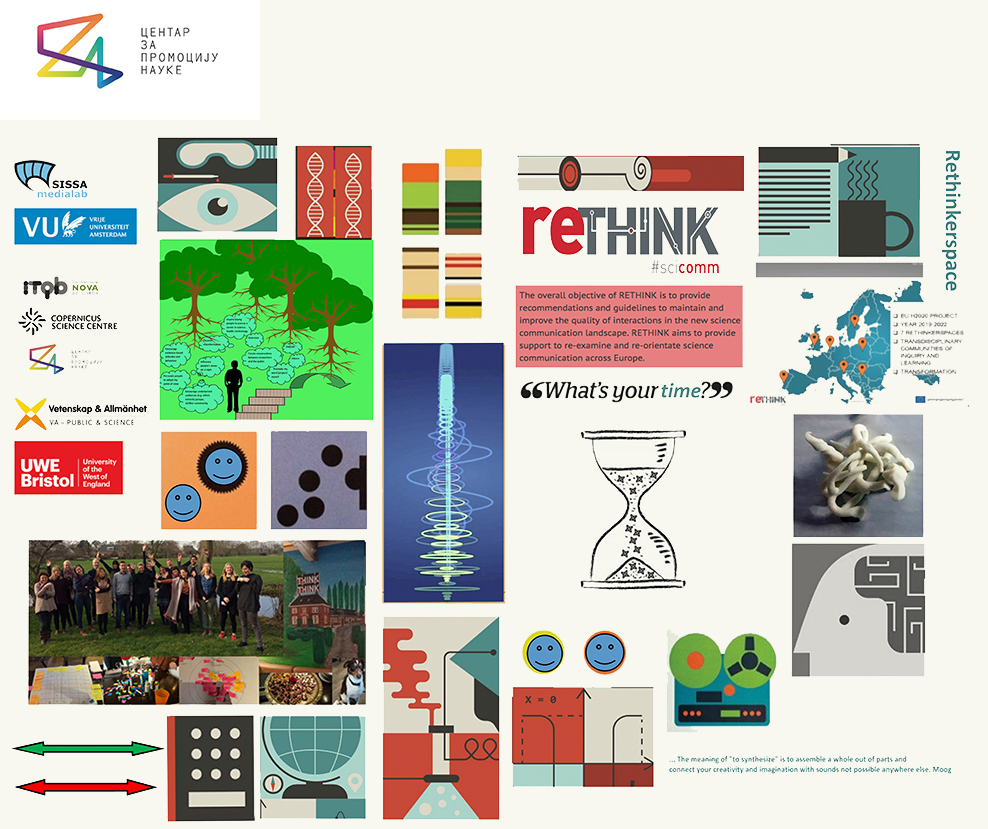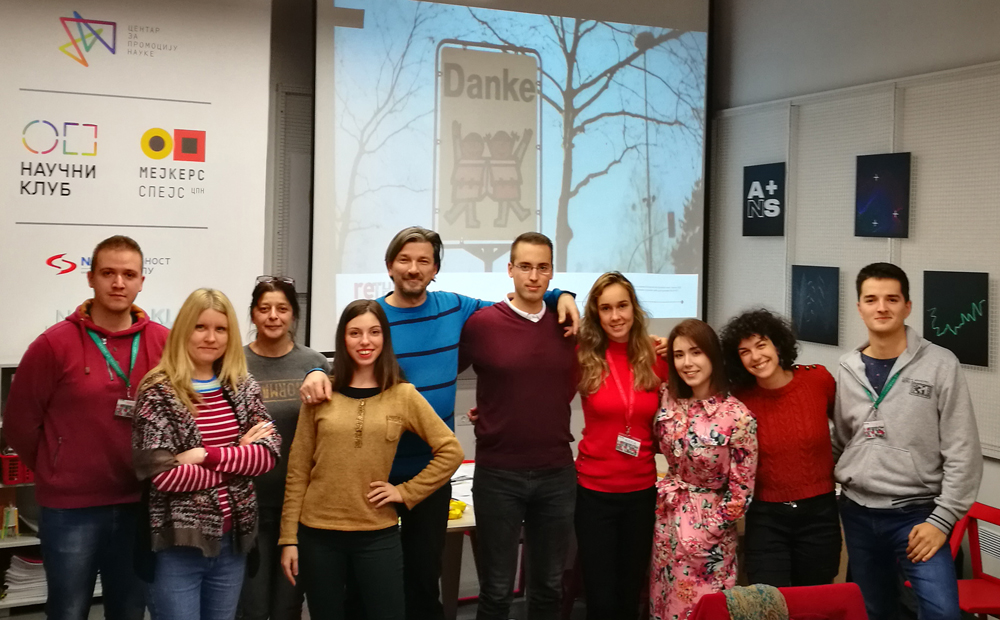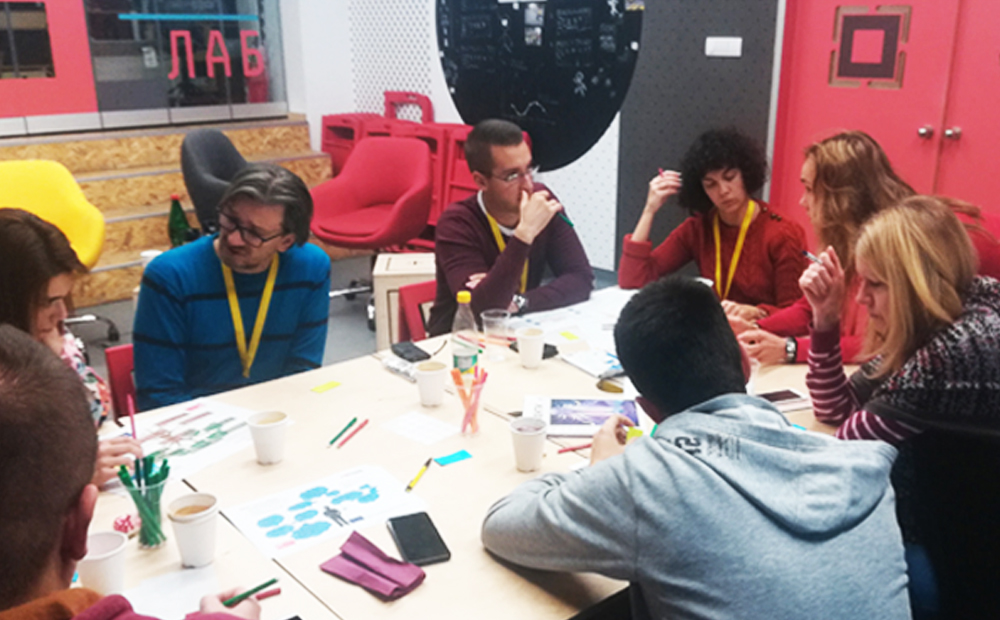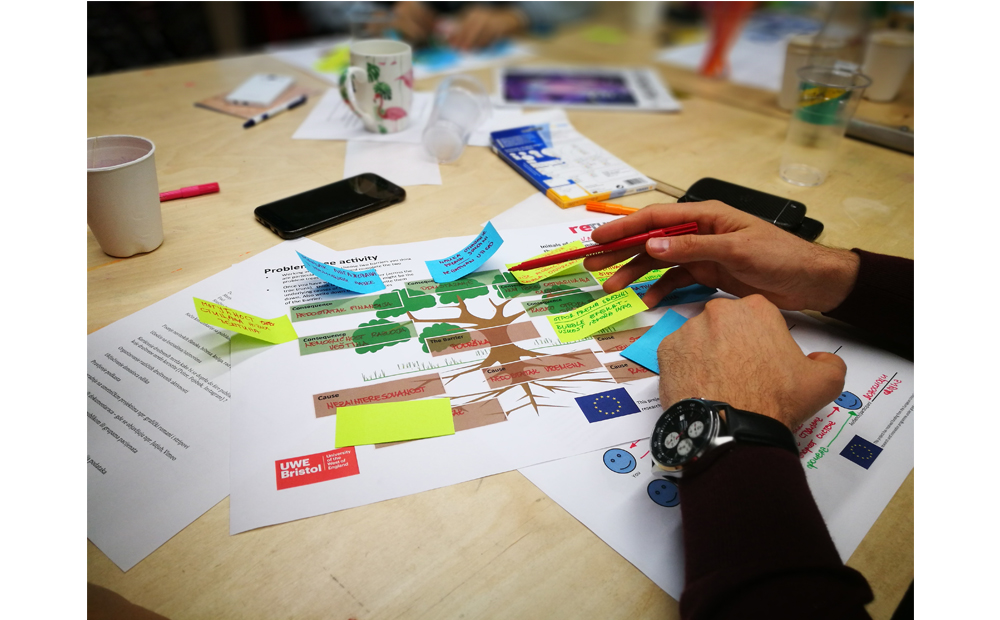
WORKSHOP #1 The set-up and thinking about the Serbian Rethinkerspace has not been an easy process. Many questions emerged and the picture of the local ecosystem was not very clear at the beginning. Who are the science communicators in Serbia? What are the new challenges they have to face in the era of digitalisation? What is their role in raising awareness and bringing science closer to society? How to encourage different stakeholders to be curious and willing to learn new communication skills and get more involved with public dialogue?
Finally we managed to have a great diversity at our first workshop, amongst our participants we had a journalist, an educator, a designer, a science explainer, a DIY scientist, a maker and others. The main goal was to have an open dialogue about the Serbian science communication landscape, to encourage all rethinkers to share their ideas and views about the barriers, motivations, and challenges they have in science communication.



WORKSHOP #2 (held in two sessions). The key outcomes of the two meetings in Serbia showed that science communication, which is the main focus of the RETHINK project, is a paradigm across Europe. One of the biggest challenges we face is time, both personally and on a social level. The lack of time, and it’s emerging as the resource that grows dramatically.
Through the prism of a common global challenge, COVID pandemic, the participants explored the role of science communication from different angles to determine its scope and actors in more detail. Through intensive discussions and interactive exercises, different opinions emerged, and yet reached similar conclusions on two topics. That reveals the complexity of the science communication ecosystem is very much alive.
WORKSHOP #3.(May 26th, 2021). Although the number of participants was lower than expected, we found that the discussion was fruitful and all of the participants contributed. The workshop had a nice flow, with the most positive side being the amount and quality of design questions and the solutions that we found in the ideation room. Research of our volunteers helped a lot with the process of finding those solutions. During the workshop, their contribution and shared experience in reflective practices and active participation in discussions were valuable.
One of the the most useful and interesting things of the worwshop was gathering around the same problem and identifying the emotions that overwhelm us as science communicators in troubled times. As a group, we found that those are the same emotions that each one of us feels, and that is where we found most room to rethink our practices. Discussion in breakout rooms was where reflexivity and openness really got into play. Each of us includes those in one form or another, but sharing our stories was what got us into dialogue about improving one another’s practices.
WORKSHOP #4 Rethinkerspace members reflected on what they have learned along the way and brainstormed on what their individual and collective outputs can be beyond the project.
Some of the key issues adressed were related to supporting the public in making sense of science-based issues by attempting to:
- Communicate critical thinking and filter information
- Include formal and informal approaches in scicomm
- Use information that encourages people to reconsider their pseudo-scientific arguments
- Enable the general public to ask a question and get an answer from thescientist (Questions and answers – on the FB page, an example)
- Work with content that is understandable, easily accessible, andaccurate
- Ask questions to people who propagate pseudo-scientific beliefs andwider misinformation – open communication and listening
WORKSHOP #5: Sustainability of Rethinkerspaces
The final event in this series of Rethinkerspace workshops brought together all participants from the seven countries in a unique meeting focusing on experience-sharing, community building and sustainability.
Participants were involved in a series on activities with an emphasis on “speed-travels” to the 7 Rethinskerspace hubs, in which hosts presented the outcomes of their workshops on the main themes of the project: Sensemaking, quality of online science communication, openness and reflexivity and reaching underserved audiences. The hosts also invited the “visitors” from other countries to offer their perspective on the issues addressed.
These were the issues that were discussed extensively.
- Scientists involved in research are failing to understand and/or value science communication.
- Mainstream journalists are lacking the necessary scientific knowledge.
- Audiences are wide and diverse, with those involved in science communication finding difficult to locate their particular audiences and knowing what their audiences are seeking in terms of scientific information and knowledge.
- Science communication must communicate something bigger than information and knowledge: values. And this is probably its greater differentiator from pure science and knowledge transfer.
- The role of emotions in how audiences interact with science is too important to be ignored in strict positivistic approaches.
